13 Dec 2024
Powered by Partnerships: Expanding our renewable energy capacity across all asset classes in 2024
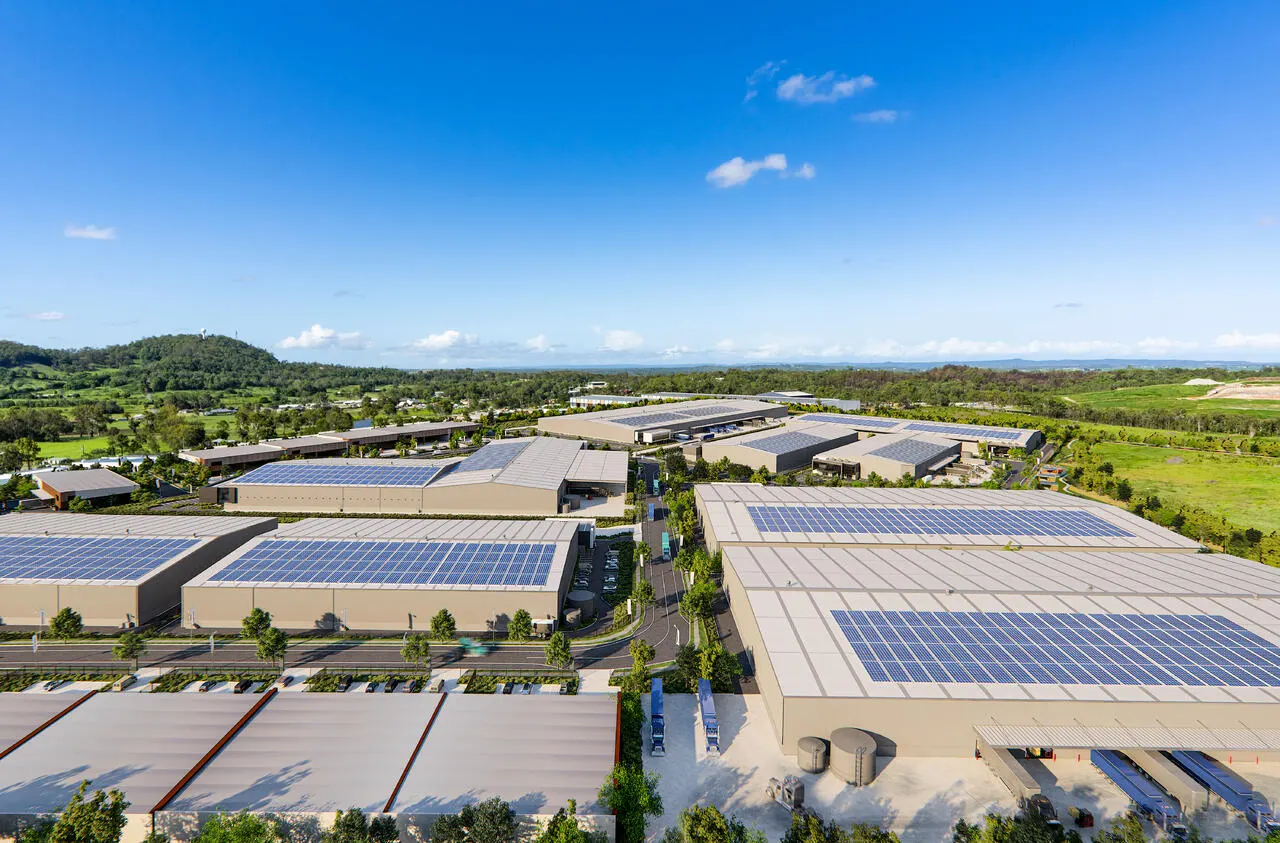
Our industrial property in Vantage Yatala, Queensland, Australia, integrates solar technology to reduce carbon emissions.
At Frasers Property, we build and optimise our spaces to not only thrive amid evolving stakeholders’ expectations, but to also improve our sustainability performance. One important aspect of our decarbonisation efforts is increasing the use of renewable energy to power our building operations.
In 2024, we made progress in the installation of renewable energy capacity across all our asset classes. We rolled out Singapore's largest single solarisation initiative across seven retail and commercial properties in April. The installation is expected to generate about 920,000 kWh of electricity per year.
As at 30 September 2024, the Group has attained a renewable energy capacity of around 46 MW, up from 32 MW the previous financial year.
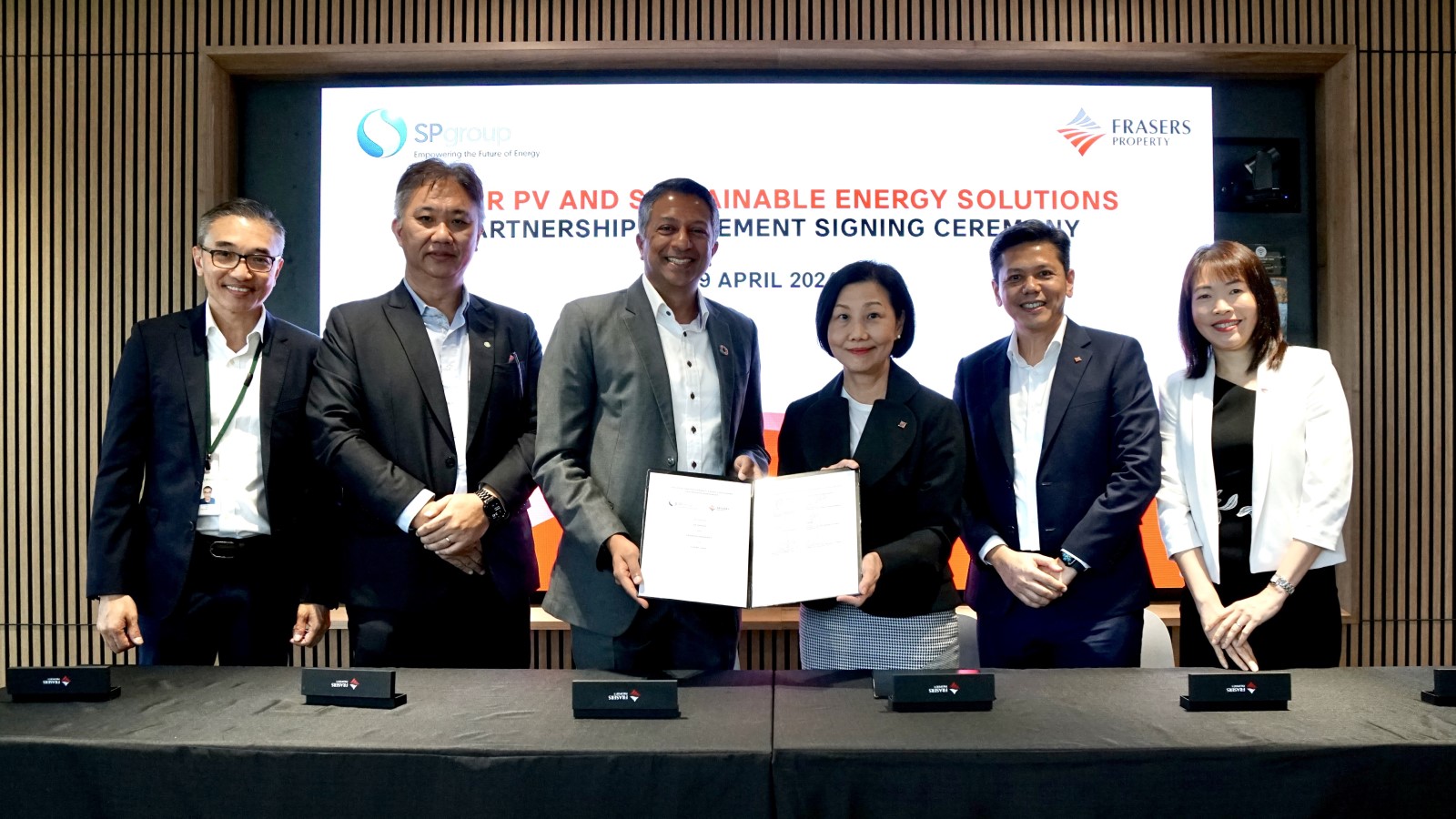
SP Group representatives, at the signing ceremony with Ms Soon Su Lin, CEO of Frasers Property Singapore, Mr Richard Ng, CEO of REIT Manager of Frasers Centrepoint Trust and Ms Anthea Lee, CEO of REIT Manager of Frasers Logistics & Commercial Trust.
"One of our six Group ESG Goals is to increase the renewable energy capacity on our properties to 215 MW by 2030. This will be mainly from solar panels on our buildings," said Paolo Bevilacqua, Frasers Property Group Head of Sustainability.
"The real estate sector contributes about 40% to the world's carbon emissions, but this also presents opportunities across its value chain to decarbonise. For instance, in our industrial and logistics developments, we have substantial spaces that are suitable for the installation of solar panels."
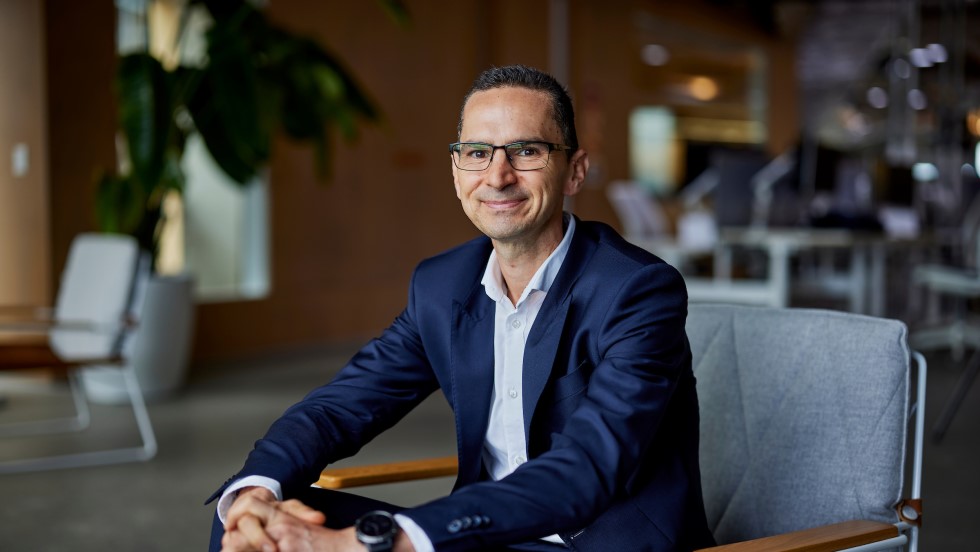
Paolo Bevilacqua and his Group Sustainability team are helping to advance Frasers Property’s ESG commitments.
A renewable commitment to net-zero
There is much more work needed to reach net-zero carbon emissions by 2050 - also one of our Group ESG Goals. With the world's renewable energy capacity set to grow by two-and-a-half times by 2030, we are also playing our part to increase this capacity in support of our net-zero goal.
We continue to explore different approaches to leverage the shift to renewable energy and energy decentralisation - where energy capacity shifts from large power plants to local renewable energy systems. Decentralisation is critical, especially in high-density, built-up locations with constraints on land and space. Today, energy generation has expanded to include onsite solar panels and battery storage facilities, cost-effectively spread across building rooftops.
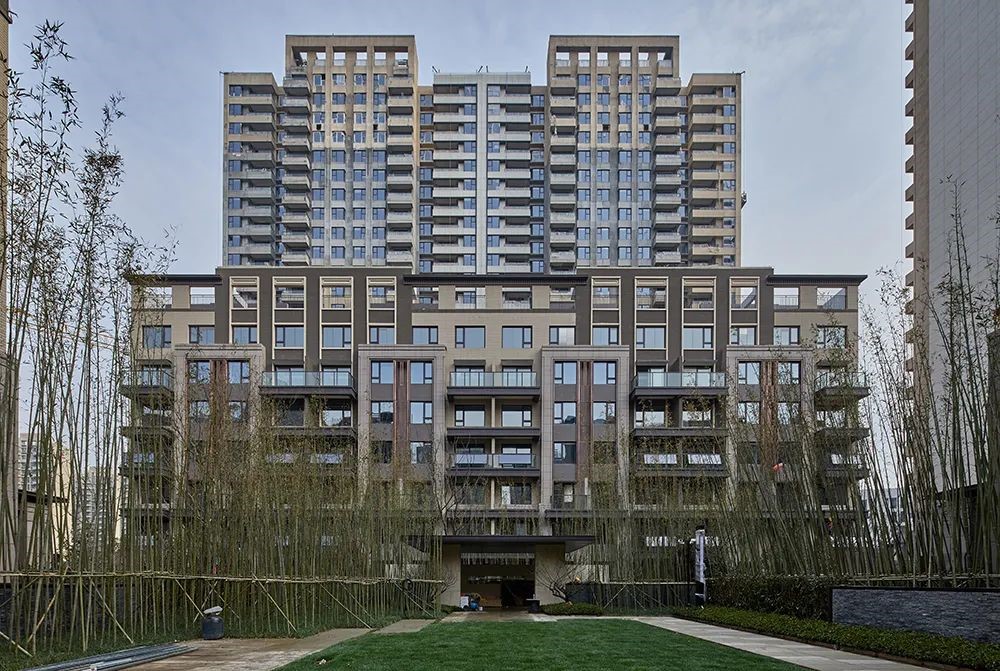
Upview Hongqiao, a residential project in Qingpu, has intelligent building design, energy-efficient systems and lush rooftop gardens. This development supports wellness and connectivity, creating a vibrant, eco-conscious community in Shanghai’s Hongqiao district.
"With decentralisation, you generate energy close to its use, minimising energy loss from its distribution and transmission, thereby improving efficiency and ultimately reducing your carbon footprint," said Paolo. This approach is applied across our key markets including Singapore, Thailand and Australia.
We installed solar panels at our newest residential projects Parc Greenwich and Sky Eden @ Bedok in Singapore. In Thailand, we have installed close to 3 MW in capacity for industrial buildings and 1.5 MW for residences for renewable energy in the country this year.
In Australia, we are piloting battery storage projects to provide a micro-grid energy solution for warehouses. This approach has achieved industry-first carbon-neutral energy outcomes in two industrial facilities in Sydney and Melbourne.
"We are taking a market-specific, hyperlocal approach and not fitting square pegs in round holes," said Paolo, pointing to how the Group considers geography, legislation and even tenant reception when rolling out green initiatives and forging partnerships. An example is how sites earmarked for solar power generation are chosen through shade analysis for optimal natural light exposure.
Emerging economies such as Vietnam and Thailand have underscored their pivot to more sustainable energy sources with initial legislative moves in 2024, highlighting the vast potential of the energy transition.
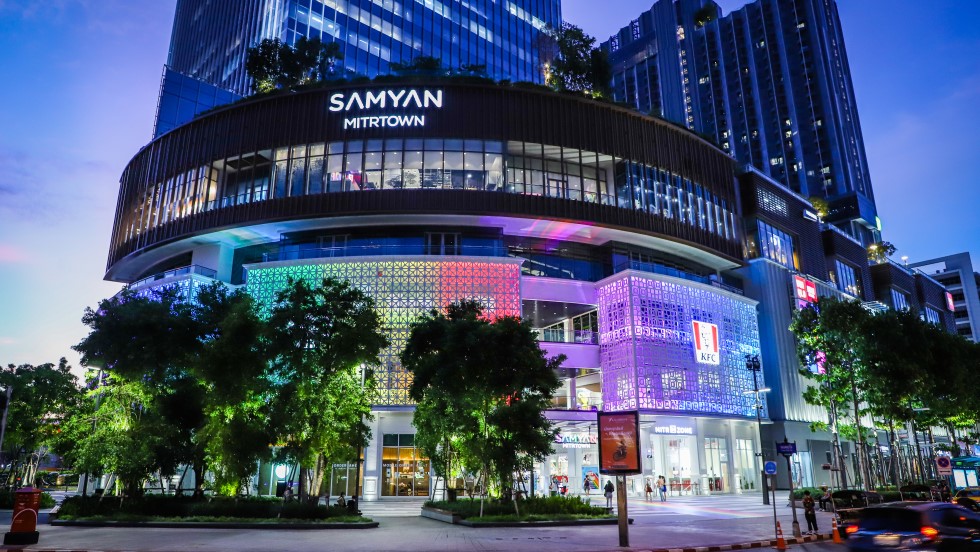
A vibrant mixed-use development in Bangkok situated near Chulalongkorn University, Samyan Mitrtown uses renewable energy solutions such as a 40 kW solar rooftop installation.
Renewed and powered by partnerships
Partnerships allow us and our like-minded stakeholders to play to one another's core strengths, and this remains critical to scaling sustainability efforts.
In our solarisation partnership with SP Group in Singapore, we consider the expertise of our partner on the design, supply, installation and testing of the solar panels across our properties. The collaboration with SP Group extends to Vietnam as well, where we work together to bring clean energy solution to BDIP Premium Industrial Park.
More real estate companies are addressing the challenge of decarbonising the supply chain and reducing Scope 3 emissions, which make up the majority of our carbon emissions. Partnerships with suppliers and tenants will provide opportunities for more concerted action.

BDIP Premium Industrial Park in Vietnam incorporates renewable energy initiatives, including solar installations, to support sustainable business growth and eco-friendly solutions for tenants.

Our battery storage projects in Australia harness renewable energy to ensure reliable power supply, while also reducing our carbon footprint.
We engage our suppliers to regularly provide specific emission data and agreeing on ESG targets as outlined in our Responsible Sourcing Policy. The hope is that such efforts will help steer our supply chain towards less carbon-intensive manufacturing and more carbon-efficient processes.
Another approach involves green leases between landlords and tenants. Containing terms that incorporate environmentally friendly requirements, green leases provide for the cross-sharing of data, utilities performance, waste management and more, including access to renewable energy. Tenants under green leases are also incentivised with reduced operating costs, access to sustainable and healthier spaces, in addition to enhanced tenant-landlord relationships.
We are exploring the adoption of green leases with tenants across our properties and markets. An example is the leasing model between our integrated, mixed-use development in Thailand, One Bangkok, with law firm Baker McKenzie. Under this tenant contract, Baker McKenzie will ensure that its 10,000 sqm of office space meets sustainability goals jointly set by both companies. The pioneering leasing model was the first of its type in Thailand when it was inked in October 2023.
There are many more ideas and solutions to be explored. Through a mix of renewable energy production, working with suppliers and tenants, and green leases, Frasers Property hopes to play our part in the journey towards net-zero.
Read our latest ESG Report here.
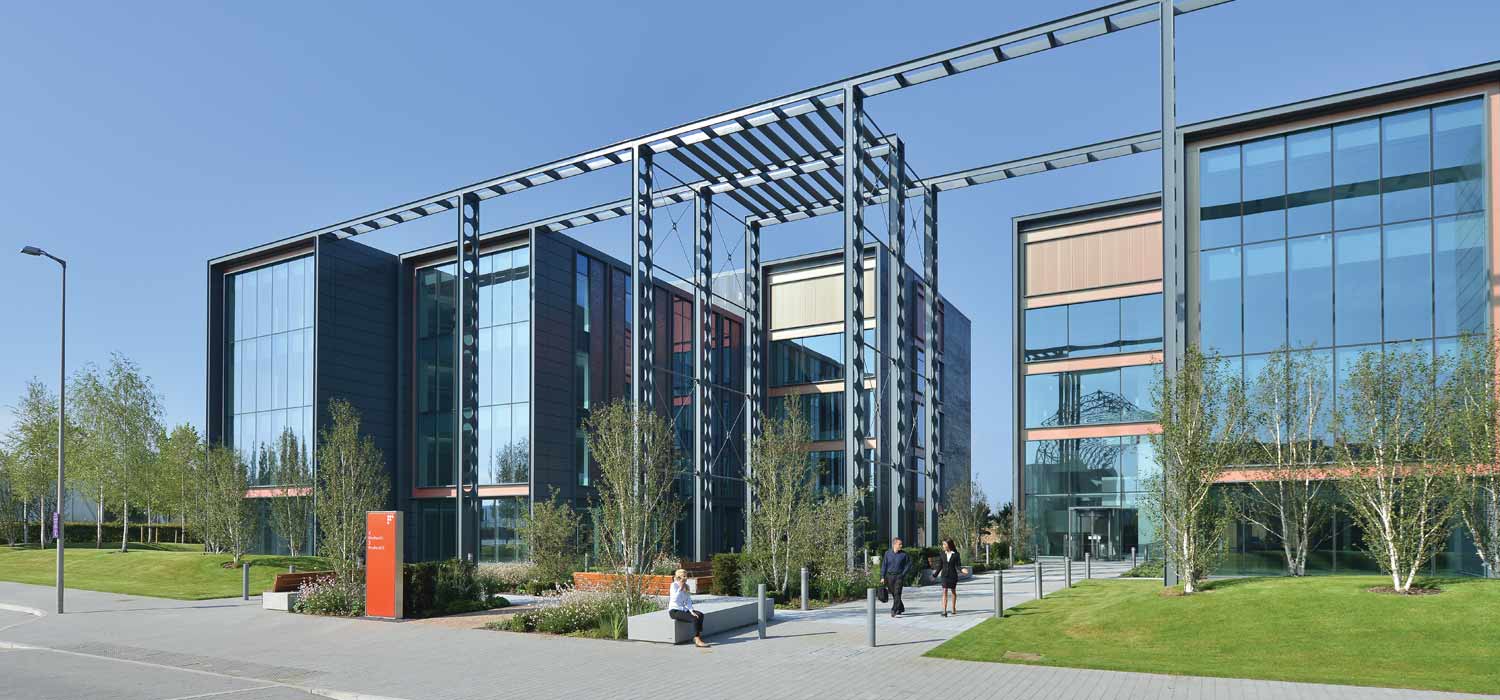
Our business parks in the UK, such as Farnborough Business Park (above), combine modern workspaces with vibrant green spaces, integrating renewable energy solutions and sustainable design.

Capri by Fraser Frankfurt blends boutique hotel style with sustainable living, featuring energy-efficient operations and eco-friendly practices.
People of Frasers Property: Paolo Bevilacqua
Paolo Bevilacqua is Frasers Property's Group Head of Sustainability, overseeing the Group's ESG commitments and journey to be a net-zero organisation by 2050.
He combines his industry expertise with his passion for sustainability and the built environment to lead a team advancing our ESG commitments, which include the target to be a net-zero organisation by 2050.
In this #PeopleOfFrasersProeprty series, hear from Paolo his insights into the Group’s work and sustainability journey.
